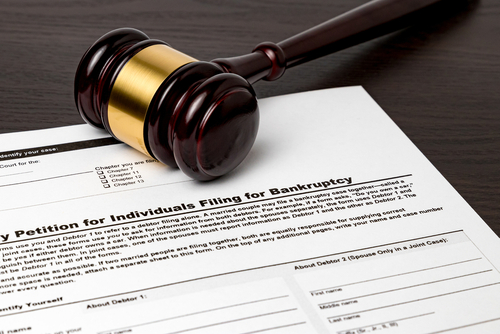Determining whether to file Chapter 7 vs Chapter 13 bankruptcy to get out of debt is a big decision. We know filing bankruptcy may be difficult. For that reason it is especially important that you understand your options when it comes to bankruptcy.
Choosing the right chapter to file depends on your individual situation. Learn the difference between Chapter 7 and Chapter 13 bankruptcy from our skilled attorneys at the Law Offices of Mark L. Miller.
Chapter 7 vs. chapter 13
In general, Chapter 7 bankruptcy is a faster process than Chapter 13 bankruptcy. Chapter 7 bankruptcy in San Diego will usually discharge within three months from filing. Typically, the case is closed shortly after entry of the discharge order. An individual or business can file Chapter 7 whereas only individuals can file Chapter 13.
But Chapter 13 comes with many benefits including the opportunity to repay mortgage arrears overtime, lower vehicle payments, reduce interest and avoid unsecured voluntary property liens. With the guidance of an experienced bankruptcy attorney from San Diego, you get out of debt and start fresh!
Chapter 7 bankruptcy: the wipe out
Chapter 7 is often referred to as a liquidation or debt wipeout bankruptcy. Indeed, Chapter 7 bankruptcy is filed more than any other type of bankruptcy. That is because your debt is permanently forgiven when the bankruptcy court issues your discharge order.
Debts discharged (eliminated) through Chapter 7 bankruptcy include personal loans, credit cards, vehicle repossessions, medical bills, leases, certain taxes, mortgage deficiencies, unemployment overpayments, judgments and more.
Many times people are afraid to file bankruptcy because they fear losing assets or property. This is a common but untrue bankruptcy myth. Bankruptcy laws include “Exemptions”. Exemptions are the way you keep your property. In particular California has very liberal exemptions available to protect your things.
Can I keep my property in Chapter 7?
By and large, most Chapter 7 bankruptcy filers keep all of their property and lose nothing. An experienced Bankruptcy Attorney will be able to advise you about the exemption laws in your jurisdiction and help you determine if anything you own or have an interest in might be at risk.
Keep in mind that outside of bankruptcy you can lose property to creditors. Prior to filing bankruptcy, creditors can continue collecting several ways. For example, creditors and debt collectors may take money out of your bank account(s), garnish wages and even attach liens to your property. But, all payments and collections stop upon filing bankruptcy.
Chapter 13 bankruptcy: consolidation or reorganization
By comparison, reorganizing or consolidating your debt is the purpose of a Chapter 13 bankruptcy. By filing Chapter 13, individuals can repay their debt over a 3 or 5 year period.
You can file Chapter 13 even if you do not qualify for Chapter 7. There are several reasons people do not qualify for Chapter 7. Examples include someone who has filed a Chapter 7 bankruptcy within the last 8 years. Additionally, those with assets or property valued above the “exemption” limits set forth in a Chapter 7. Thirdly, when you do not pass the means test.
It is important to note that sometimes Chapter 13 is a better option even if you qualify for Chapter 7. This is true if you are behind with mortgage payments and do not have the ability to pay them in full. Likewise, when you owe more on your vehicle than it is worth, a Chapter 13 and you can substantially reduce the loan balance through a cram down.
Filing bankruptcy can protect a home from foreclosure and possibly eliminate an unsecured 2nd mortgage. This type of bankruptcy is also a very effective tool for repaying any tax obligations.
Chapter 13 repayment plan
When deciding between Chapter 7 vs Chapter 13 bankruptcy, the biggest difference is the payment plan. In Chapter 13 bankruptcy you must file a plan of reorganization. Every person who files Chapter 13 must propose a payment plan to the bankruptcy court.
Filing Chapter 13 triggers the bankruptcy court to appoint a trustee to oversee your case. Also you will begin making payments consistent with your Chapter 13 plan. Among the bankruptcy trustee’s duties is collecting and processing your Chapter 13 payment for disbursement to your creditors set out in your Chapter 13 plan.
Chapter 13 bankruptcy law is complicated. It requires a skilled attorney who knows and understands bankruptcy law. San Diego in particular has a lengthy Chapter 13 plan. Do not trust your case to an inexperienced attorney. Doing so can result in disastrous consequences like losing your property, paying an unnecessarily high plan payment and even dismissal of your case.
Consult an attorney experienced in both Chapter 7 & Chapter 13 bankruptcies
Ensure that you are making the right decision for your financial future by consulting with a San Diego Bankruptcy Attorney. The Law Offices of Mark L. Miller files both Chapter 7 and Chapter 13 bankruptcy cases. We have successfully discharged nearly $1 billion of debt for our clients.
We have continuously been voted Best Bankruptcy Attorney San Diego by the San Diego Union Tribune and San Diego Reader. We are located in the close vicinity of the Sheriff’s Museum and Educational Center. Our attorneys are available by phone, text or email. Contact us today to find out if Chapter 7 or Chapter 13 is right for you.




